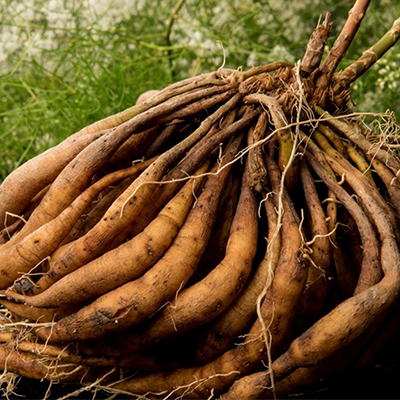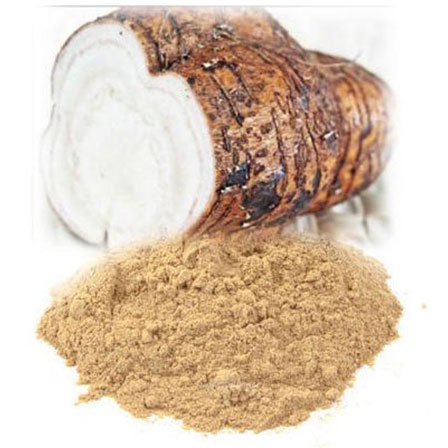Being underweight means having a body weight that is considered too low for good health. This is often determined by the Body Mass Index (BMI), which measures weight in relation to height. A BMI below 18.5 is generally classified as underweight.
While being slim is often associated with fitness, being excessively underweight can pose serious health risks, as it may indicate poor nutrition, underlying medical issues, or both.
Reasons for being Underweight
There are several reasons a person may be underweight, including:
Poor Nutrition
- Insufficient intake of calories and nutrients due to imbalanced diets or eating disorders like anorexia nervosa.
High Metabolism
- Some individuals naturally have a faster metabolism, making it difficult to gain weight despite consuming adequate calories.
Chronic Diseases
- Conditions such as diabetes, thyroid disorders (hyperthyroidism), cancer, or tuberculosis can lead to unintended weight loss.
Digestive Disorders
- Conditions like irritable bowel syndrome (IBS), Crohn’s disease, or celiac disease interfere with nutrient absorption, leading to weight loss.
Infections
- Chronic infections like HIV/AIDS or intestinal parasites can cause weight loss and poor nutrition.
Mental Health Issues
- Depression, anxiety, or stress can lead to reduced appetite and unintentional weight loss.
Genetic Factors
- Some people inherit a naturally lean body type, which can make it harder to gain weight.
Excessive Physical Activity
- Over-exercising or physical jobs can burn more calories than consumed, leading to weight loss.
Medications
- Certain drugs (e.g., chemotherapy or appetite suppressants) may lead to weight loss.
Aging
- Older adults often experience weight loss due to reduced appetite, muscle loss, or underlying health conditions.
Health Hazards of Being Underweight:
Weak Immune System:
- Being underweight can impair the body’s ability to fight infections.
Nutritional Deficiencies:
- Lack of essential nutrients (vitamins and minerals) may lead to anaemia, brittle bones, and poor skin health.
Bone Weakness (Osteoporosis):
- A deficiency in calcium and vitamin D increases the risk of fractures.
Fertility Issues:
- Women who are underweight may experience irregular menstrual cycles or infertility.
Hair, Skin, and Nail Problems:
- Poor nutrition can lead to hair thinning, dry skin, and brittle nails.
Fatigue and Weakness:
- Lack of energy due to inadequate calorie intake.
Developmental Delays:
- In children and adolescents, being underweight can affect growth and development.
Heart Problems:
- Severe malnutrition may lead to low blood pressure, slow heart rate, or other cardiovascular issues.
Psychological Effects:
- Low body weight can lead to poor self-esteem, anxiety, or depression.
Increased Risk of Surgery Complications:
- Underweight individuals may have difficulty recovering from surgeries due to weakened immunity and poor healing capacity.
Ayurvedic Perspective on Being Underweight
Concept of Kārshya in Ayurveda
In Ayurveda, Kārshya refers to a pathological condition of being excessively lean or underweight. It is characterized by loss of muscle mass, weakness, and undernourishment, and is considered a result of improper nutrition, poor digestion, and an imbalance in the Doshas, primarily Vata Dosha. Kārshya is not merely a physical state but also reflects the impaired functioning of the digestive and metabolic systems in the body.
Definition of Kārshya
According to Charaka Samhita, Kārshya is described as a state of the body where there is depletion of muscle tissue (Mamsa Dhatu) and fat (Meda Dhatu) due to insufficient nourishment or metabolic issues.
Kārshya is associated with a dhatu kshaya (tissue depletion) and a dominance of Vata Dosha, which leads to a catabolic state in the body.
Pathogenesis (Samprapti) of Kārshya
- Weak digestive fire (Mandagni) leads to incomplete digestion.
- Incompletely digested food (Ama) accumulates in the gut, blocking channels (srotas).
- Nutrients fail to reach body tissues (dhatus), leading to their depletion.
- Aggravated Vata exacerbates tissue dryness and emaciation.
Ayurvedic Management of Kārshya
The treatment of Kārshya in Ayurveda focuses on:
Strengthening Agni (Digestive Fire):
- Enhancing digestion and assimilation of nutrients.
Nourishment and Rejuvenation:
- Restoring tissue balance (dhatu poshana) through proper nutrition and Rasayana (rejuvenative therapies).
Balancing Vata Dosha:
- Pacifying aggravated Vata to prevent further depletion.
Dietary Recommendations:
Nourishing Foods:
- Milk, ghee, butter, and cream.
- Whole grains like rice and wheat.
- Lentils and legumes (cooked with ghee for better digestion).
- Sweet fruits like bananas, mangoes, and dates.
- Root vegetables like carrots and sweet potatoes.
Spices to Boost Digestion:
- Ginger, cumin, fennel, and coriander.
Foods to Avoid:
- Dry, cold, and raw foods.
- Foods high in Vata-aggravating qualities like bitter, astringent, or overly spicy foods.
Lifestyle Modifications:
Abhyanga (Oil Massage):
- Daily massage with warm sesame or medicated oils to nourish tissues and balance Vata.
Regular Meals:
- Eat at fixed times to support digestive fire.
Yoga and Pranayama:
- Gentle yoga poses like Balasana (Child’s Pose), Bhujangasana (Cobra Pose), and Shavasana (Corpse Pose).
- Breathing exercises like Anulom Vilom and Sheetali to reduce stress and improve metabolism.
Adequate Rest:
- Ensure 7–8 hours of quality sleep for tissue repair and rejuvenation.
Panchakarma Therapies
Snehan (Oleation Therapy):
- Internal and external application of medicated oils to strengthen tissues.
Vasti (Enema Therapy):
- Herbal enemas to pacify Vata and promote nutrient absorption.
Rasayana Therapy:
- Use of rejuvenative herbs to enhance vitality and build strength.
Herbal Remedies
Ashwagandha(Withania somnifera):
A powerful Rasayana that promotes tissue growth and vitality.
Shatavari (Asparagus racemosus):
Nourishes the body and balances Vata-Pitta Dosha.
Vidari Kand (Ipomoea digitata):
Enhances muscle strength and promotes healthy weight gain.
Bala (Sida cordifolia):
Improves strength and immunity.
Gokshura (Tribulus terrestris):
Helps in building healthy tissues.
Chyawanprash:
An herbal jam rich in nutrients to boost immunity and nourishment.
Pippali (Long Pepper):
Improves digestion and nutrient absorption.
Karshya is not merely about low body weight but reflects an underlying imbalance in digestion, metabolism, and nourishment. Ayurvedic treatment focuses on restoring balance by addressing the root cause, improving digestion, and nourishing the body through dietary, herbal, and lifestyle interventions. With consistent application of Ayurvedic principles, individuals can achieve a healthier weight and overall well-being.










